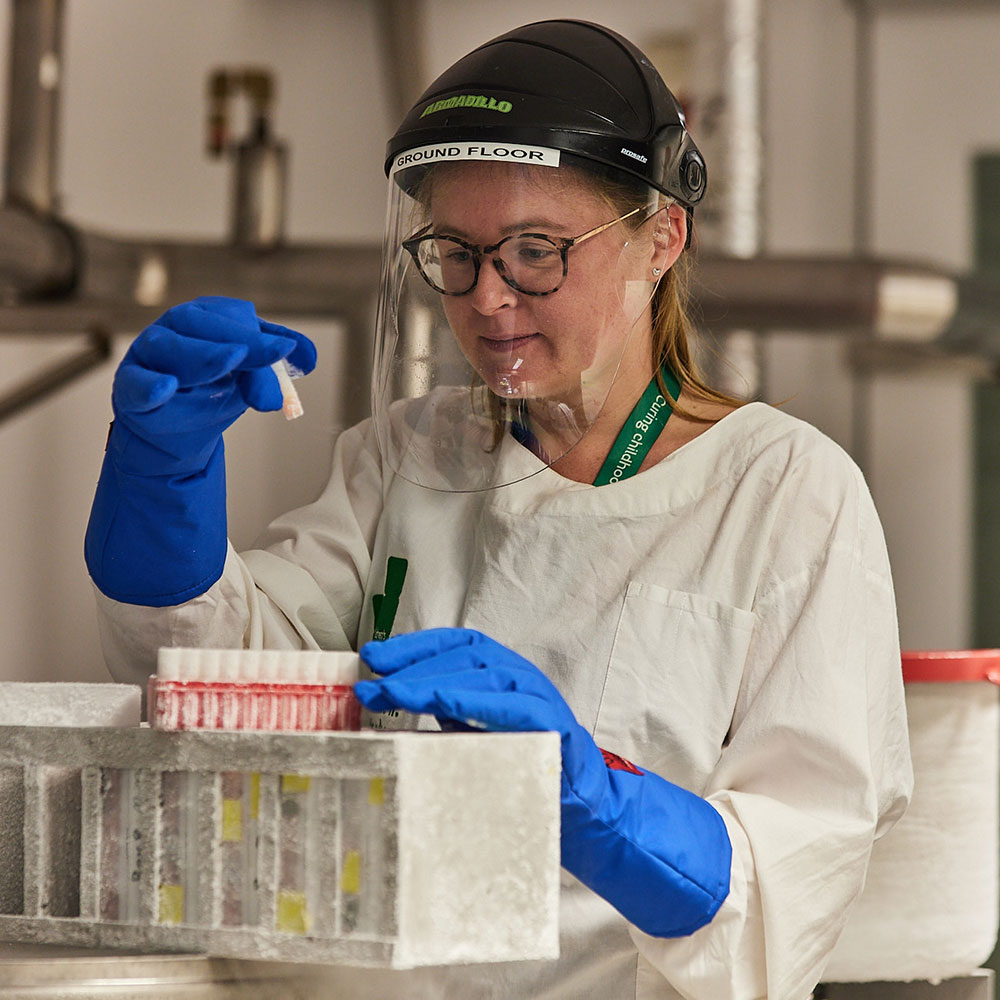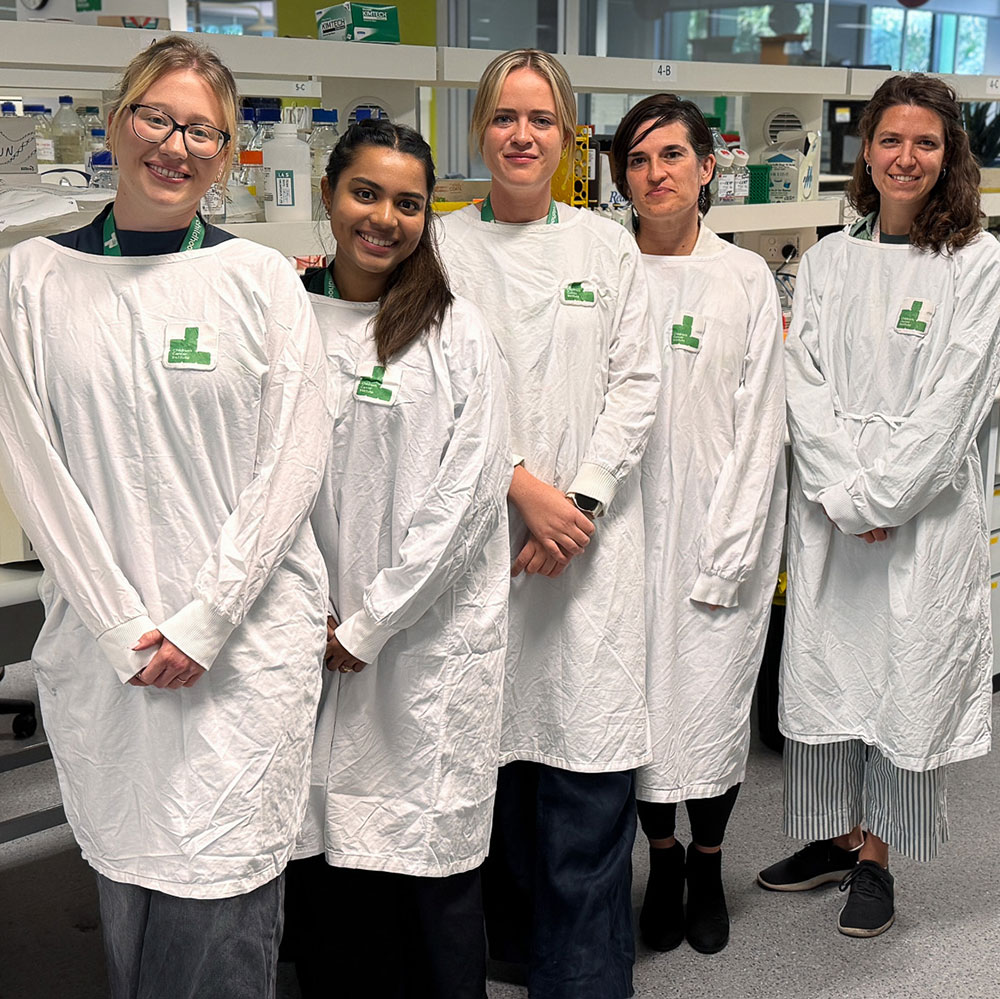Four groundbreaking research projects at Children’s Cancer Institute have been awarded ‘2023 Ideas Grants’ by the National Health and Medical Research Council (NHMRC). The grants, intended to support innovative research projects of early- to mid-career researchers, total more than $4.59M and will support the projects over the next three years.
Two of the four projects chosen for the prestigious funding focus on the most common cancer in children, acute lymphoblastic leukaemia (ALL). The third focuses on the deadly brain cancer, diffuse intrinsic pontine glioma (DIPG), while the fourth relates to all high-risk childhood cancers.
The first of the ALL-focused projects is investigating how some leukaemia cells are able to survive induction chemotherapy, leading to relapse, and how these cells might be therapeutically targeted. Researcher Dr Charley de Bock said he was excited by the prospect of uncovering new ways to treat ALL — a cancer that continues to claim far too many children’s lives in Australia.
‘Unfortunately, there are very few treatment options available for children who relapse with this disease,’ he said. ‘Through this project, we aim to understand exactly how the cells that cause relapse survive treatment, and identify new ways of targeting these cells.’
To do this, the project will use new technology called ‘single-cell multi-omics’ to understand how surviving cells — termed ‘minimal residual disease’ (MRD) — avoid cell death and continue to grow and divide. It will also use gene editing technology to identify new therapeutic targets in these cells, ultimately leading to new treatment strategies for children with ALL.
The second ALL-focused project is investigating a new treatment strategy for a high-risk subtype of ALL, Philadelphia chromosome-like acute lymphoblastic leukaemia (Ph-like ALL). Patients with this subtype are given intensive treatment, often causing severe side effects, and have survival rates as low as 30%.
‘There is an urgent clinical need for new targets to be identified in Ph-like ALL, so more effective and safer treatments can be developed,’ commented researcher Dr Narges Bayat.
The project centres on the development of a new-generation of a therapeutic agent, known as an antibody-drug conjugate (ADC), designed to directly target Ph-like ALL cells and combat multiple cancer escape mechanisms. Once developed, the ADC will be tested in living models of the disease. The research will also involve testing other drugs to see if any show a synergistic effect, in which case they may be used in combination with the ADC.
The third project to receive funding will apply epigenetics to develop a new therapy for children with DIPG, a fatal and untreatable brain cancer. This research aims to identify specific DNA regions that cause DIPG and specifically target them using advanced systems and technologies, including Nobel Prize-winning CRISPR/Cas technology. To do this, the project will bring together a diverse team of national and international researchers who are experts in their field.
‘I feel extremely excited to obtain Australian Government funding for DIPG research, an area of huge need,’ said Dr Fa Valdes Mora, who heads the project. ‘They say it takes a village to raise a child; I say it takes many countries and thousands of people to cure children with DIPG, and I truly hope our research can make significant contributions to this cause.’
In addition to developing a new therapy for DIPG, the project will also investigate the use of nanotechnology to help deliver the therapy to DIPG cells in the brain, and the use of other agents in combination with the new therapy to increase its impact.
The fourth and final project to be awarded a grant is using data from the Zero Childhood Cancer Program (ZERO) to improve our knowledge about genetic abnormalities associated with high-risk childhood cancers, and how these might be therapeutically targeted. Specifically, the project is focused on a subset of cancers that involve a molecular mechanism known as tyrosine kinase activation.
‘ZERO affords us the unique opportunity to study children’s tumours in enormous detail,’ explained Associate Professor Ekert. ‘By studying tyrosine kinase activation in high-risk cancers, we hope to identify those cancers which can be effectively treated with drugs that specifically target this molecular mechanism; that is, tyrosine kinase inhibitors. Our research indicates that this mechanism applies to more cancers than we currently can recognize. If that proves to be the case, many more children could potentially benefit from this therapy than is currently the case.’














